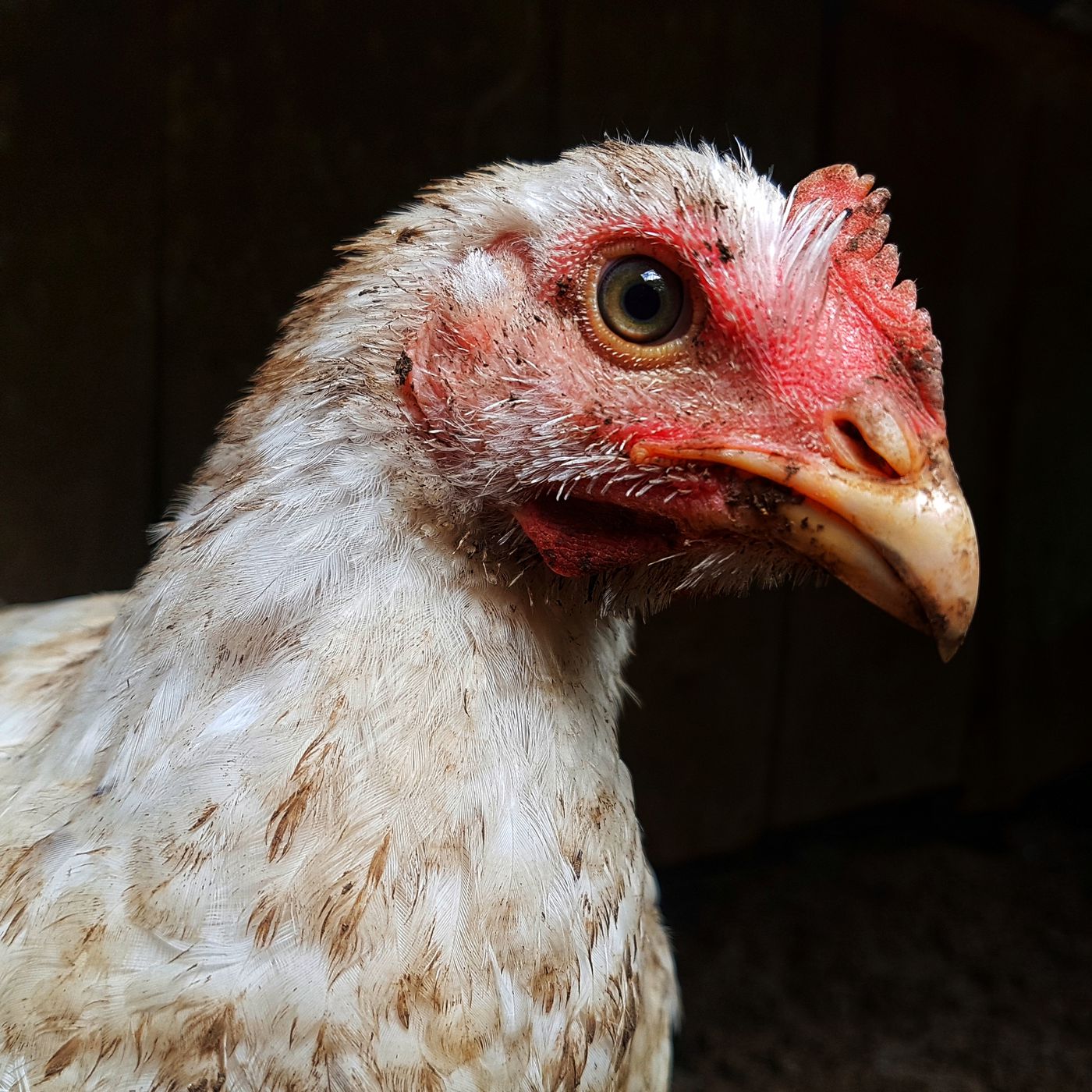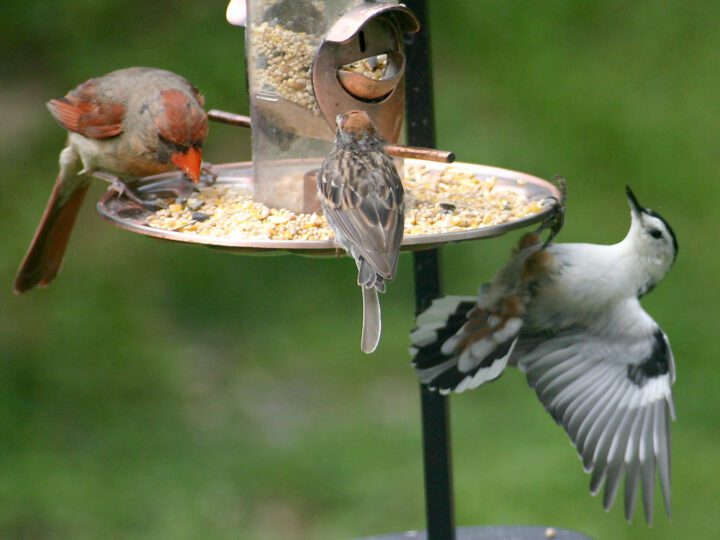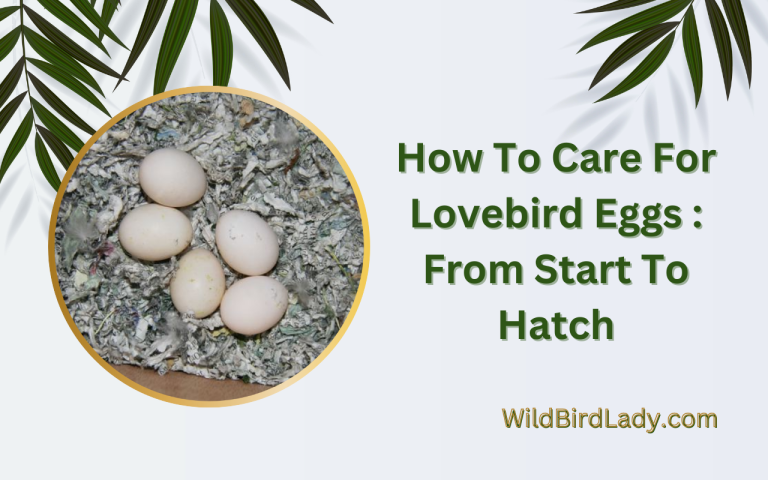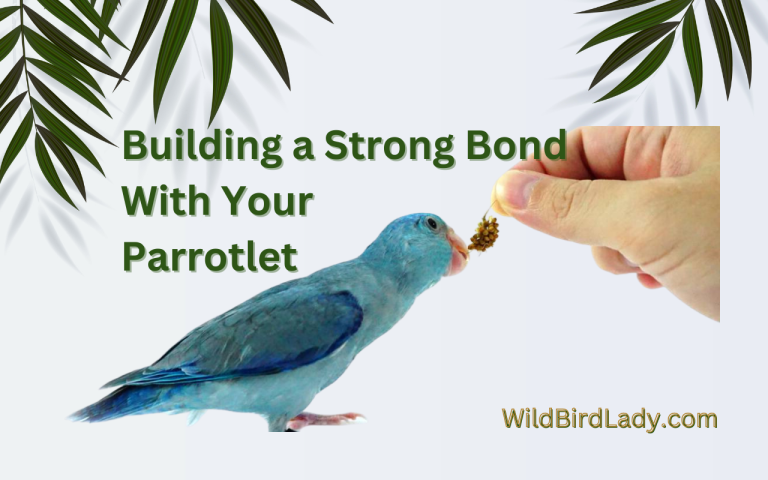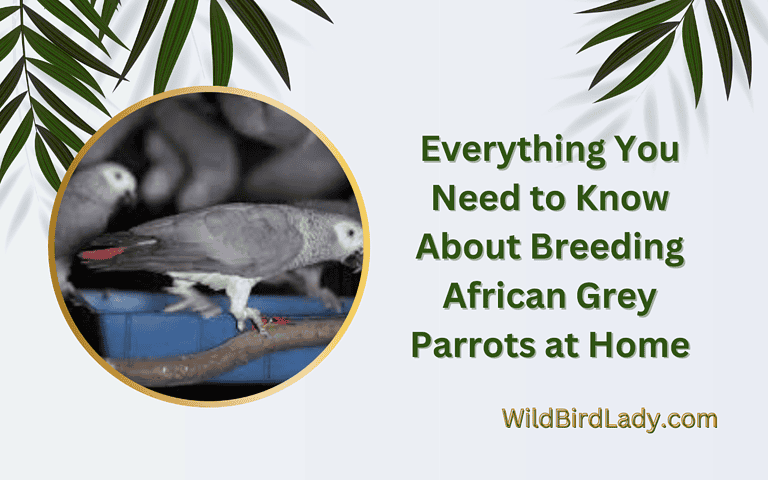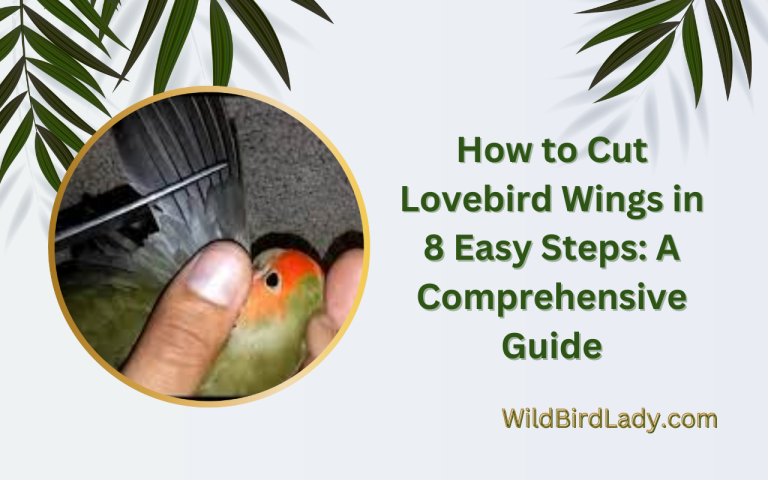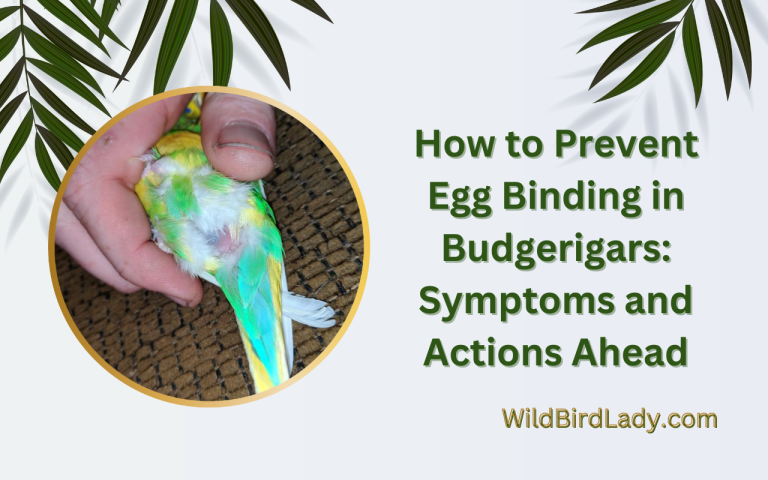Why is My Cockatiel Shaking? Discover The Common Causes and Treatment
Possible answer: cockatiels shake for many reasons, including feeling cold, scared, nervous, or ill. The shaking may affect different parts of the bird’s body and manifest in various ways.
To diagnose and treat the underlying cause of your cockatiel’s shaking, you should observe its behavior, environment, diet, and health, and consult a qualified avian veterinarian if needed. Cockatiels are popular pet birds known for their affectionate, intelligent, and musical nature.
However, they are also sensitive creatures susceptible to various health and behavioral issues. As a pet owner, you should learn to recognize the signs and symptoms of common problems and seek professional advice if necessary. In this article, we will discuss some of the possible causes, symptoms, and treatment options for cockatiels that shake and tremble. By understanding the causes of your bird‘s shaking, you can provide the best care and support to help it feel safe, comfortable, and healthy.
Credit: www.allaboutbirds.org
Physical Causes Of Cockatiel Shaking
Description and symptoms:
Cockatiels communicate through their body language, and one of the most common physical signs of discomfort or illness is shaking. It could be as simple as a mild reaction to a change in the environment or could indicate a serious health issue.
- Fluffing up their feathers
- Holding their wings away from their body
- Rapid tail movements
- Reduced activity levels
- Weight loss
- Anorexia
Common physical causes:
Here are some common physical causes of shaking in cockatiels:
- Infection: Bacterial or viral infections can result in symptoms such as shaking, lethargy, and weight loss.
- Nutritional deficiencies: A diet deficient in calcium, vitamin d3, and minerals can cause tremors and weakness.
- Poisoning: Cockatiels are sensitive to certain toxins and may exhibit shaking if they ingest harmful substances.
- Environmental stress: Loud noises, vibrations, and sudden movements can cause temporary shaking.
- Mites and lice: If your bird is infested with these parasites, it can cause discomfort, itching, and shaking.
- Cold temperatures: Cockatiels are warm-blooded and cannot tolerate cold temperatures. Exposing them to cold drafts can lead to shivering and shaking.
Treatment options:
The treatment of shaking in cockatiels depends on the underlying cause.
- Infections: Antibiotics or antiviral drugs may be prescribed by a veterinarian.
- Nutritional deficiencies: Feed your bird with a balanced diet or supplements as recommended by a veterinarian.
- Poisoning: Remove any harmful substances from the bird’s environment and seek immediate veterinary care.
- Environmental stress: Remove the source of the stress or provide a calm and quiet environment.
- Mites and lice: Apply mite/lice treatment as recommended by a veterinarian.
- Cold temperatures: Keep your bird warm by providing a heat source such as a heater or a warm blanket.
As a responsible pet owner, it’s important to seek veterinary care if your bird’s symptoms persist or worsen. Remember, early detection and treatment can prevent serious health complications.
Emotional Causes Of Cockatiel Shaking
At times, you may notice your cockatiel shaking or trembling, which could be a sign of an underlying medical or emotional concern. In this section, we will discuss the emotional causes of cockatiel shaking. Understanding these causes can help you identify the reason for your pet’s shaking and provide appropriate care.
Description And Symptoms
Cockatiels are social birds and, like humans, can experience emotions such as anxiety, stress, and fear. These emotions can cause your bird to shake, tremble or quiver. Cockatiels may show physical symptoms that indicate emotional distress, such as fluffing up their feathers, pacing back and forth on their perch, and clinging to the cage’s bars.
Common Emotional Causes
Some common emotional reasons for cockatiel shaking include:
- Loneliness or boredom: Cockatiels are social creatures that require companionship and enrichment. Lack of social interaction or stimulation can lead to boredom, loneliness, and anxiety, resulting in shaking or shivering.
- Fear or stress: Loud noises, sudden movements, new people or animals, and unfamiliar environments can cause fear and stress in your pet. This can trigger physical reactions such as shaking, trembling, and panting.
- Medical issues: In some cases, cockatiel shaking may be a symptom of medical concerns such as vitamin deficiency, respiratory illnesses, seizures, or parasites. Consulting with a veterinarian can help determine if any underlying medical issues are contributing to shaking.
Treatment Options
If you notice your cockatiel shaking, you can take some steps to alleviate their emotional distress.
- Providing social interaction: Give your bird plenty of enrichment, such as toys, swings, and perches, and spend time with them regularly.
- Avoiding stressful stimuli: Reduce sudden, loud noises and other stressors that may trigger shaking.
- Consult with a veterinarian: If you suspect that your bird’s shaking is a symptom of an underlying medical issue, seek the help of a veterinarian.
Cockatiel shaking may be an indication of emotional distress, including loneliness, fear, and stress. By identifying the cause of your pet’s shaking and taking appropriate measures, you can ensure their emotional well-being and happiness.
Diagnosis And Treatment
As a pet owner, seeing your beloved cockatiel suddenly shake or tremble can be quite concerning. If you notice your feathered friend shaking, it’s crucial to take immediate action to determine the cause and treat the problem. In this section of our blog post, we’ll cover the steps you should take when your cockatiel is shaking, including when to seek veterinary care, diagnostic procedures, and treatment options.
When To Take A Shaking Cockatiel To A Veterinarian
Seeking veterinary care right away is crucial if your cockatiel is shaking. While some shaking may be normal, especially during sleep, persistent or severe shaking may indicate an underlying medical issue.
- Shaking or trembling is continuous, severe, or lasts for an extended period.
- Your cockatiel appears weak, tired or lethargic.
- Your bird loses its balance or has difficulty perching, flying, or walking.
- There is a change in your cockatiel’s appetite, water intake, or droppings.
- Your cockatiel appears to be in pain, with signs of discomfort like fluffed feathers, huddled posture, or lack of vocalizations.
Diagnostic Procedures
Your veterinarian will perform a thorough examination to identify what might be causing your cockatiel to shake.
- Physical examination: The veterinarian will check for any visible signs of illness, like discharge from the eyes or nostrils or injuries that may explain the shaking.
- Blood tests: Analyzing your cockatiel’s blood for abnormalities can help identify underlying health problems.
- Radiographs (x-rays) or ultrasound: These tests can help diagnose any underlying medical conditions in your cockatiel.
- Stool sample test: Your veterinarian may need to perform a stool sample test to check for the presence of parasites or abnormal bacteria.
Treatment Options
The type of treatment recommended will depend on the cause of your cockatiel’s shaking.
- Medications: Your veterinarian may prescribe medications to address the underlying cause of your bird’s shaking.
- Change in diet: Changing your cockatiel’s diet can help address any nutritional deficiencies, which may be causing the shaking or trembling.
- Supplemental heat: Cockatiels require a stable and warm environment. If shaking is due to cold weather, adding supplemental heat sources, like heat lamps or heated perches, may be recommended.
- Surgery: In more severe cases, surgical intervention may be required.
How To Care For A Sick Cockatiel
If your cockatiel is diagnosed with an underlying medical condition, it is essential to take appropriate care of them during this time.
- Provide a quiet and warm environment to allow for healing.
- Make sure your cockatiel gets plenty of rest.
- Monitor your bird’s droppings, water intake, and appetite.
- Follow your veterinarian’s prescribed treatment plan.
- Provide extra attention and care to your cockatiel during this time.
By closely monitoring your cockatiel and seeking veterinary care at the first sign of shaking, you can take steps to ensure that your feathered friend stays happy and healthy.
Frequently Asked Questions Of Why Is My Cockatiel Shaking? Common Causes, Symptoms, And Treatment Options
What Are The Common Causes Of A Shaking Cockatiel?
Cockatiels may shake due to stress, cold temperature, illness, old age, or low blood sugar. It can also be a sign of neurological problems, injury, or poisoning. Proper diagnosis from a veterinarian is important.
How Can I Tell If My Cockatiel Is Sick Or Just Cold?
If your cockatiel is shaking and fluffed up, it could indicate illness or being cold. However, if you see discharge from the eyes or nose, lack of appetite, or changes in droppings, it may be a sign of sickness and require veterinary attention.
Can I Treat My Shaking Cockatiel At Home?
Unless the shaking is due to something simple like cold or stress, do not attempt treatment at home. You could make the problem worse or even harm your pet. Take your bird to a veterinarian for proper diagnosis and treatment.
Is Shaking A Sign Of A Serious Illness In Cockatiels?
Shaking in cockatiels can be a sign of serious underlying health problems, including neurological diseases, tumors, or organ failure. Early diagnosis and treatment is crucial to give your bird the best chance of recovery and a healthy life.
How Can I Prevent My Cockatiel From Shaking?
Providing your cockatiel with a warm, secure environment, a balanced diet, fresh water and regular veterinary checkups can help prevent shaking. Regular exercise and socialization can also reduce stress levels in your bird.
Conclusion
As a cockatiel owner, noticing your bird shaking or trembling can be concerning. However, it is crucial to understand that certain factors may cause this behavior. By being observant and knowing what to look for, you can quickly identify the potential causes of your bird’s shaking.
From improper diet to illness, several reasons could be leading to your cockatiel’s tremors. It’s always best to consult with a veterinarian if you notice that your bird is frequently shaking. Proper treatment and care can significantly improve your cockatiel’s overall health and prevent further complications.
Ensure to maintain a comfortable living environment, offer a balanced diet, and provide adequate social interaction to ensure your feathered friend’s well-being. Remember, being a responsible owner means understanding the needs of your bird and taking the necessary steps to provide a healthy and happy life.
Published on August 19, 2023 | Last Updated on June 19, 2025 by Rifat Ahmed

